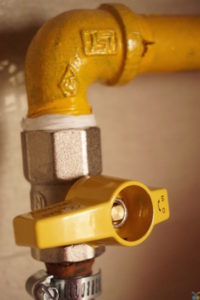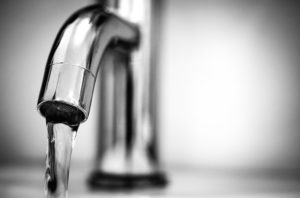VIEW OUR COMMERCIAL
As seen on TV

CHOOSE THE EASY OPTION FOR YOUR INSURANCE, WE’LL GET YOU A QUOTE IN NO TIME AT ALL.

12 Ways To Prevent Burst Pipes This Winter
Burst pipes are one of the damaging home emergencies you can face. Costly and messy, burst pipes = stress and inconvenience. Fixing the leak is just the start. Finding the location of the leak in the first place can take a long time and a lot of digging. And that means costs quickly stack up. Then putting right water damage to your home, and reinstating floors and pathways, can cost £thousands. With extreme weather, like the Beast from the East, becoming more common and widespread across the UK, burst pipes are something we all need to prepare for. So we’ve put together this Easy2read guide with 12 ways to protect your home this winter.
First, understand what causes burst pipes in cold weather
In the wintertime, when temperatures fall, the water pipes in your home are at risk of freezing. When water freezes, it expands. If it freezes within the confines of a pipe, it can cause the pipe to crack. When the ice thaws, water can then escape from the hole or holes that have been made.
How cold does it have to be for pipes to burst?
Water starts to freeze when it reaches 0 degrees centigrade. Prolonged periods of cold weather or extremely low temperatures put your pipework at risk of freezing.
How can I prevent water pipes bursting in cold weather?
Luckily, there are a number of steps you can take to help reduce the risk of frozen pipes this winter and minimise damage.
- Lofts are unheated and a prime location for frozen pipes. If you have a water tank in your loft, take care to insulate it well. Insulation can be purchased from most DIY stores and helps to protect the pipe from cold temperatures.
- Don’t forget to insulate the water pipes feeding into and out of your water tank to help stop them from freezing. Take care to make sure there are no gaps in the insulation.
- Even if you don’t have a water tank in your loft (for example you have a combi-boiler), you may still have water pipes running through your loft. Check for them and insulate as necessary.
- If you do have a tank or pipes in the loft, it might be worth opening up any hatches during very cold weather. This will allow heat to rise into the roof space. It may increase your heating bills, but it could help prevent frozen pipes.
- Garages are another cold spot in your home. Check for pipes running along the wall or roof of your garage and ensure they are adequately insulated.
- Again, in freezing weather, consider using portable heating to increase the temperature in this space.
More tips to stop pipes freezing
- Pipes can also burst in other parts of your home. Check windows and doors for draughts that let cold air in, especially in parts of your home with no heating.
- Temperatures can plummet in empty properties, so if you go away, set your heating to low. If you can’t do that, ask a neighbour to pop in and put the heating on regularly.
- If the property will be left empty for a long time, consider turning off the water at the stopcock. You’ll also need to drain the system, so there is no water standing in the pipes. You can do this by opening all the taps and letting the water drain away.
- It’s not just piping bringing water into your home that can burst. Pipes taking it away can be damaged too. If you have a dripping tap, get it fixed. Otherwise, that water could freeze resulting in damage.
- Know where your stopcock is. If you have a leak or suspect a pipe has frozen, you’ll want to stop water flowing through the pipes as soon as you can to minimise water damage in your home. If you know where your stopcock is, you can turn off the water straight away. As a general rule, turning them in a clockwise direction closes stopcocks.
- If you think a pipe has frozen try to warm it up gently. You could use a hairdryer on a low-heat setting but don’t use a high setting or a blowtorch. If you do, the extreme changes in temperature could cause more damage to the pipe.
Can pipes burst in warm weather?
Water pipes can burst for a number of reasons, and it’s not just limited to the wintertime. Plastic pipework used in the 1970s has a limited lifespan and can degrade over time resulting in small holes that can get bigger under water pressure. If you’ve got older metal pipes, these can corrode over time resulting in holes. Pipes can also burst thanks to DIY accidents. For example, you put a nail through a water pipe when putting a picture up on your wall.
How big a problem is a burst pipe?
Water is supplied to your home under pressure. That means that if a pipe bursts, up to 400l an hour can leak into your home. The average bath holds 200l, so this is a substantial quantity. It can cause significant damage to the structure of your home as well as contents and furnishings.
Insurance for water leaks in your home
The cost of finding, fixing and making good a water leak can be £thousands. But many ordinary home insurance policies won’t cover everything if you have a water leak. For complete peace of mind, take out home emergency insurance cover. These are designed to take away the cost and stress of emergencies in your home, including mains service supply, plumbing and drains, home security, lost keys and primary heating. You could even opt for a policy that includes boiler insurance.
Home emergency cover can be purchased separately to your standard home insurance and can vary in price. Ask the experts at Easy2Insure to find the most competitive price, with no compromise on cover, for you. Call us free on 0800 9179522 or get in touch.











